
Friendship Circle Takes Families With Special Needs on First-Time Visit to Israel
The looks on their faces—on the kids’ faces—reflected in their parents’ eyes, that’s what it’s all about. That’s what it’s always about.
The Friendship Circle is known throughout the world for its work with children and families managing special needs, but it recently topped a new level of action. For the first time, it sponsored a trip to Israel for parents and families from its home headquarters in West Bloomfield, Mich.
Six families from the Detroit metropolitan area returned this month from a highly specialized tour led by Friendship Circle family coordinators Rabbi Tzvi andSarah Schectman. While there have been Birthright Israel trips for Friendship Circle members in the past, this was the first multigenerational trip for those centered around the lives of children with special needs.
“We started working on it about four years ago,” explains the rabbi. “We had the idea of a special-needs trip to Israel because we saw there were so many other types of trips. Yet even if a family with special needs could afford it, it was something that was not doable for many of them.”
With the help of a formal proposal developed by Friendship Circle director Rabbi Levi Shemtov and a grant from the Davidson Foundation—started by the late philanthropist and businessman Bill Davidson of the Detroit area—they received funding for the trip that made it affordable for the families and for several volunteers who joined them to help.
“It was a pilot program that we plan to do every two years,” says Schectman. Invited was a relatively small group of six families and several volunteers—a total of 27 people—to keep it manageable and focused. Touring the land of Israel with a larger group could prove challenging when it comes to accessibility and the sensitivity of some children and teenagers.
“The trip went beyond my expectations,” he says. “It gave us an opportunity to really connect with families through the holiness of the Land of Israel.”
“You don’t necessarily think about it when you’re going. But it is part of you,” he says.
“When you’re visiting Israel, this is something that’s inside of your soul, a connection. It’s almost like your neshama belongs there. It permeates your entire being. You are home.”
‘Engaging for Every Participant’
But taking a group with distinct special needs could prove challenging in Israel, with its bustling major cities and rough terrain everywhere else. As such, the group used Israel Maven Tours on the ground there to plan many of the logistics.
Marketing and client-relations coordinator Deb Rabinsky at Israel Maven Tours explains that while the agency has organized trips for participants with special needs in the past, “this trip was the first of its kind providing an Israel experience for kids and teens with special needs together with their families. We took a lot of time and effort to design an itinerary that addressed the group’s needs, down to the very last detail. Our goal was to provide interactive and hands-on activities to ensure that the trip was engaging for every participant.”
And each day, she adds, “we assessed the group, and made changes to the schedule based on their energy and interest levels.”
As far as physical logistics go, “Israel is improving in the area of accessibility; however, there is still a lot of ground to cover. Many of the main tourist sites have wheelchair ramps and/or elevators, though navigating around cities in general is often not as comfortable as it could be.”
The agenda included extensive time in Jerusalem, including a real-life archeological excavation, a tour under the Western Wall tunnel and a visit to the Davidson Center; and sight-seeing in the major geographical areas in Israel, such as the Galilee, the Golan Heights, Tel Aviv and the coastal region, and Masada.
Activities included a program sponsored by the Chabad Terror Victims Project in Kfar Chabad; volunteering at Colel Chabad’s Pantry Packers warehouse in Jerusalem; a barbecue with Israeli soldiers on an army base in the Golan; a meeting with artisan Sheva Chaya, complete with a live glass-blowing demonstration; camel-riding in the desert and horseback-riding on the road; Jeep rides and boat rides; and even time for a chocolate-making workshop up north. The program worked in time for prayer and contemplation, and, of course, Shabbat at the Western Wall.
Rabinsky says the tour company also arranged an activity for the kids with Shutaf, an Israeli-based inclusion program for kids and teens with special needs. “While the kids enjoyed a scavenger hunt around Jerusalem to get to know the city and the people a little better, the adults had a chance to meet with the directors of Shutaf to better understand the program and perhaps adopt some of their methods to take back home to the United States.”
And even though she and her colleagues work with tour groups of all kinds, Rabinsky notes that this one was different: “What really brought it to life was seeing the participants react to everything they experienced with such raw emotion. Nothing said thank you like the smiles on their faces or the tears in their eyes or a jump at the opportunity to participate in a new activity.”
Lest some physical obstacles lay in their paths, the Israelis made sure to keep it simple. During one outing in Hebron, for example, soldiers took charge near an arduous staircase. Recounts Schectman: “Some soldiers just grabbed [the child’s] the wheelchair and started carrying it up. They made it their job to make sure she could enjoy everything everyone else was experiencing.”
The group also shared an evening with the parents of Friendship Circle of Central Jerusalem, and Rabbi Eliyahu and Chana Canterman, co-directors of the Chabad Center of Talbiyeh in Jerusalem. Part of the discussion tackled some of the challenges of raising children with special needs.
‘Being Jewish, Being Different’
Deb Schiffer and her husband, Eric, participated with their 13-year-old daughter Sarah, who is high-functioning on the autism spectrum.
“She has a very difficult time transitioning; when she gets bored, she gets anxious and has a hard time paying attention,” explains Deb Schiffer. “They made it a hands-on experience mixed in with the information.”
“Sarah has a hard time making friends, but was able to bond with other kids on the trip. It was amazing how cohesive it was,” continues Schiffer. “When someone was impatient or struggling to pay attention there was a lot more compassion for what they were going through. This was nice for her she because she identified with herself and others being Jewish—and being different.”
She also makes it a point to praise the tour guide, “who was just incredible. She was able to stop and acknowledge each of the children.”
During the trip, says Schiffer, “Sarah told us that it was incredible and so much fun. We just saw her grow and her love of Judaism deepen. I couldn’t have asked for a better opportunity. On a normal mission, people wouldn’t have had the patience. And that’s what this was about.”
Marvin Berman came to Israel with his granddaughter, Carlie Suris, 13, and her parents, Debby and Eric Suris.
Wheelchair-bound, he says, “she was swept away and kind of thrilled by it all, especially so many young soldiers paying attention to her. They carried her up the steps in Hebron. In three minutes, she was at the top. And I was just getting started.”
Berman also notes that the children enjoyed 30 meals together at a table by themselves without their parents, socializing and enjoying themselves freely. “When you see a child you care about in the middle of a bunch of kids who wanted to sit by her, it’s just amazing,” he says. “Everybody had a friend. The kids were involved in everything; there was something for everybody. Even on the bus, the kids sat at the back together. It was something to behold.”
He has been on three other trips to Israel, but says this one was the best. “It was a very personal visit to Israel,” he notes, with each child—each with their own special needs—having their own volunteer during their time there. Wearing badges around their necks, he says they were stopped on their travels numerous times by people who knew about Friendship Circle and its work.
Along those lines, Berman says his other grandchildren served as Friendship Circle volunteers in high school. “Volunteers get to understand what humanity is. It’s a great character-builder. In this everyday world of ours, it’s really unbelievable what gets done with these children.”
The hardest part of the experience, he laments, was leaving. At the airport getting ready to go through customs, he relates, all of a sudden the families heard a deep wail as one of the children said goodbye to her newfound friend. “The parting really was very sad, but they made plans to keep in touch.”
“It was an enormously valuable trip,” he sums up. “It was truly a miracle of miracles . . . a dream come true.”



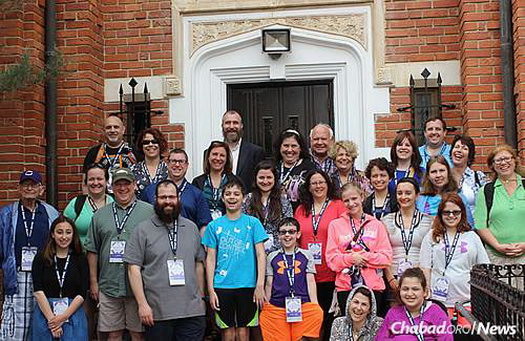
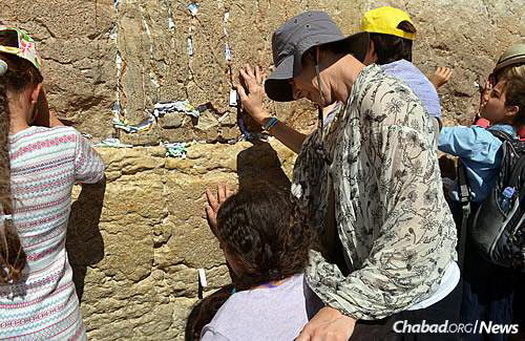
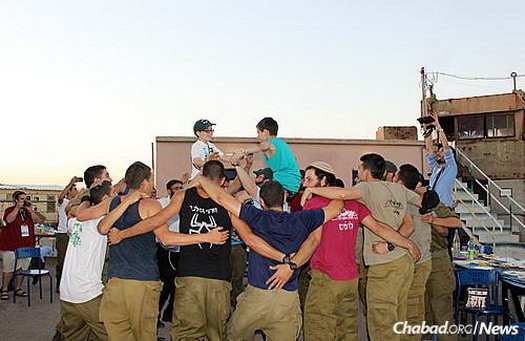
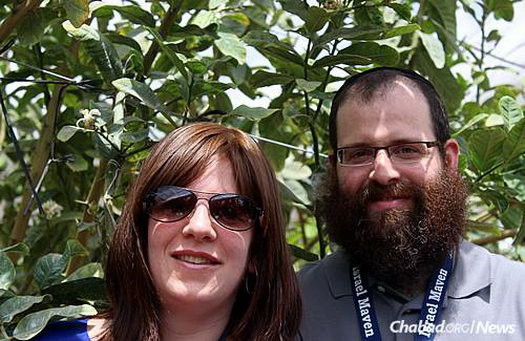
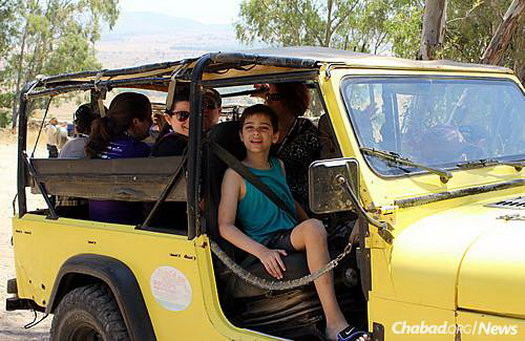
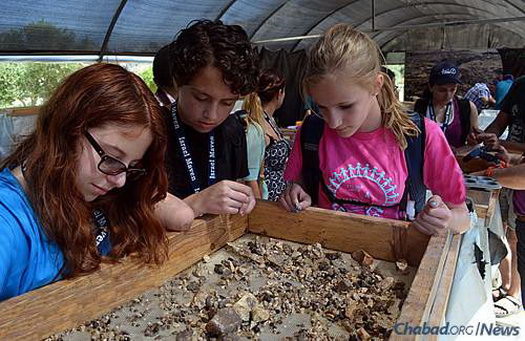
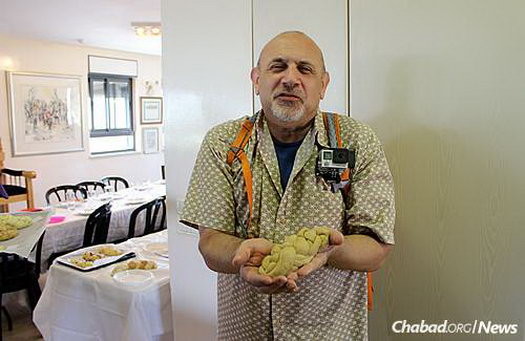
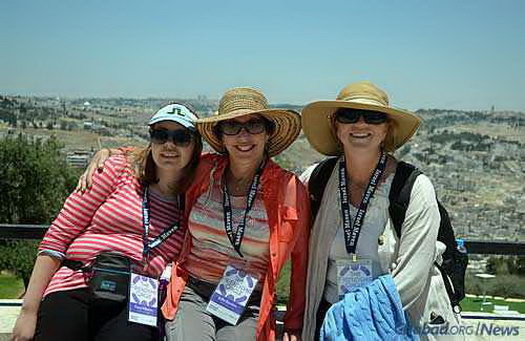
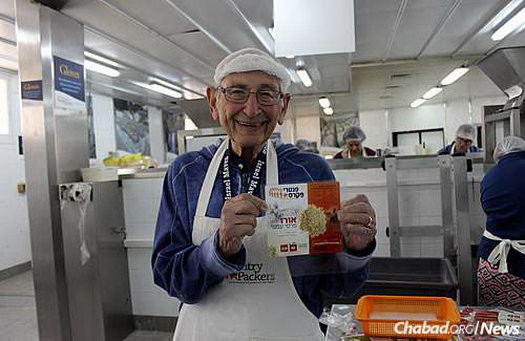
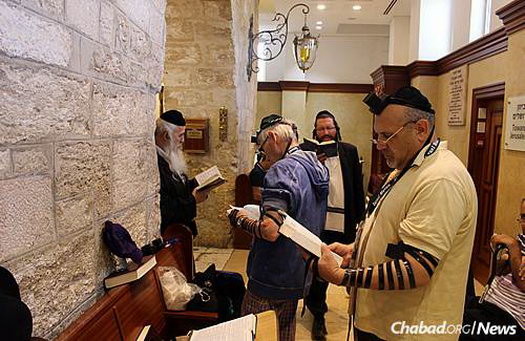
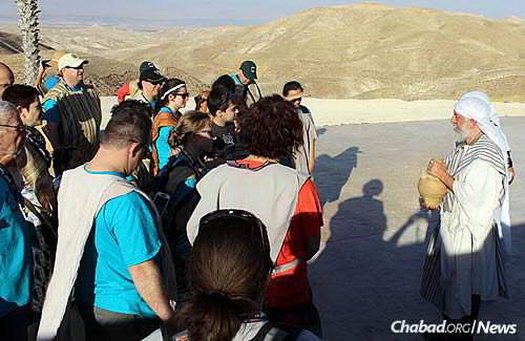
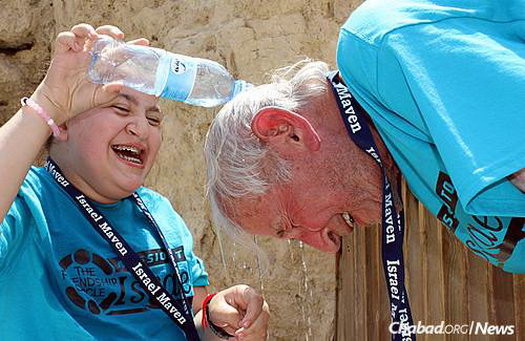
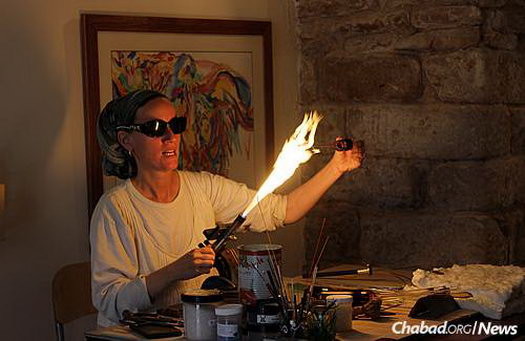
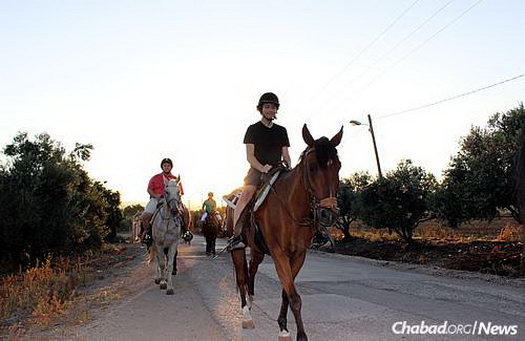











nice!
moshiach NOW
Love
This story touches the corner of my heart I wish I had to be able to shower them with finances so they can do more of these type of projects being a parent with a special needs child I know what it’s like to go through every day with amounts of hardship and stress that is involved And just never having the chance to get away and to unwind and air our selfs out I can go on and on but what can I say god should bless them (The ones who are doing this project and the parents of those beautiful special holy children)and their dear families with only good peace health happiness.AMEN
kop
Provided such patents of special needs children do not damage our other children the volunteers, by having boys and girls mingle together at their shabbos table and making inappropriate and unhealthy “shidduchim” / dating between well-meaning and unsuspecting innocent singles. Having a disabled child is not a green light to destroy the lives of other healthy children / singles by exposing them to unclassified values and Anti Torah morals.